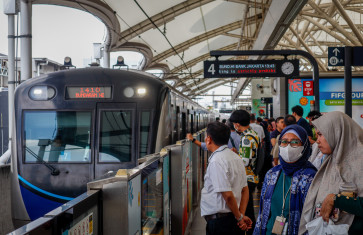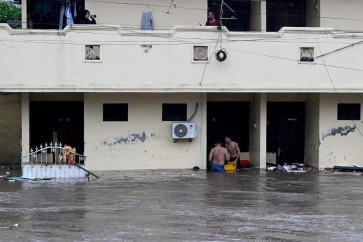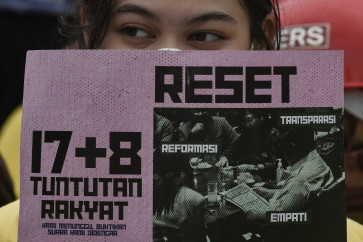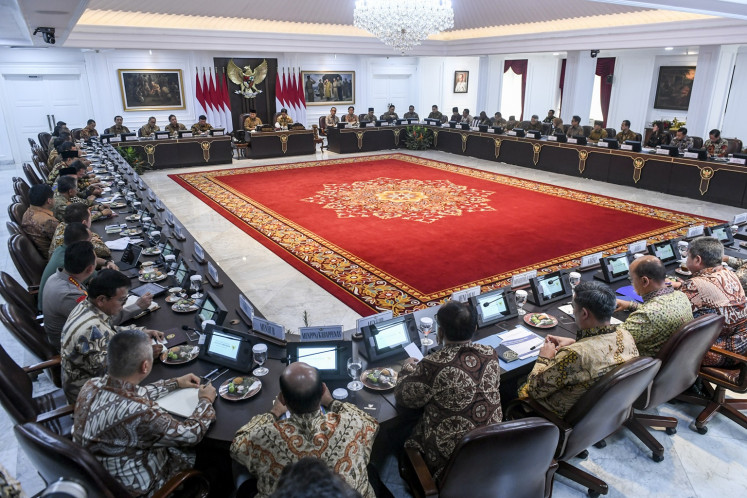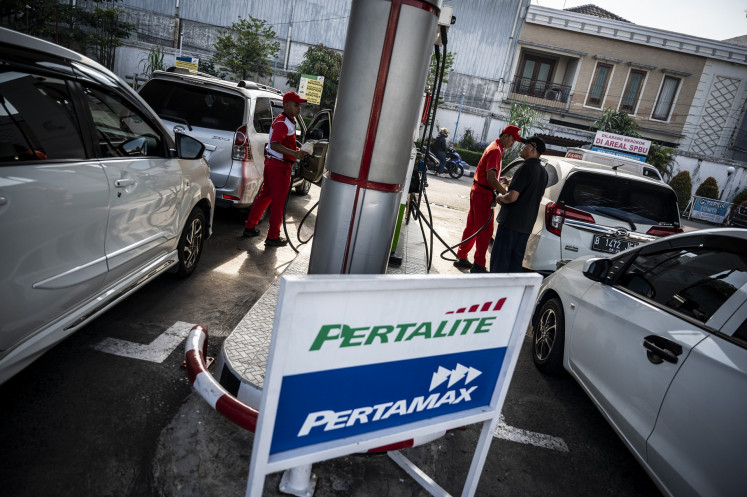Popular Reads
Top Results
Can't find what you're looking for?
View all search resultsPopular Reads
Top Results
Can't find what you're looking for?
View all search resultsEditorial: Stop Jakarta's sinking
Jakarta is sinking, and fast
Change text size
Gift Premium Articles
to Anyone
J
akarta is sinking, and fast. Research, mostly done by Dutch consultants, found that in some places it sinks as fast as 15 to 18 centimeters a year, in most places 3 to 5 cm, and on average about 7.5 cm a year. Millions will be affected by tidal floods in several years if nothing is done.
For people in North Jakarta, where the sinking is the fastest, these findings are very real. Eight years have passed since the great tidal flood of 2007, but locals still remember it vividly.
There is not much debate about this fact. Scientists have agreed that this is a danger to Jakarta, and it has to be stopped immediately. Neither is there much debate about the major cause of the subsidence: Massive groundwater extraction by millions of households, offices and industry.
Scientists also agree that to stop the sinking, Jakarta has to stop the groundwater extraction. The ongoing debate is about whether Jakarta needs a giant seawall under the National Capital Integrated Coastal Development (NCICD) program to protect itself from tidal floods.
Nevertheless, Jan Jaap Brinkman, one of NCICD's consultants, says, 'The cheapest and easiest solution is to stop the sinking. The only thing Jakarta needs to do is to stop the deep groundwater use and the sinking will stop within five to 10 years. Then you do not need a closed Jakarta Bay, you do not need a giant seawall.'
The reason behind excessive extraction of groundwater is the lack of piped water coverage in Jakarta. It has remained at about 60 percent for years, because Jakarta lacks water supply to increase the coverage. This fact has been reiterated by the two private water operators in Jakarta, PT PAM Lyonnaise Jaya and PT Aetra Air Jakarta.
Jakarta has been relying on raw water supply from Jatiluhur Dam in West Java and the Cisadane River in Tangerang.
It is, of course, impossible to tell people not to extract groundwater if the piped water coverage is far below 100 percent. Thus, the first step is to increase water supply by treating enough raw water in Jakarta.
Aside from extracting groundwater, millions of households, offices and industry also dump their wastewater, untreated, into Jakarta's 13 rivers, making the river water heavily polluted, thus very costly for treatment.
First, Jakarta must have a high-capacity wastewater treatment plant. The existing one, Setiabudi plant in Central Jakarta, treats less than 3 percent of the city's total wastewater.
Jakarta and the central governments have planned to build a wastewater plant system, estimated to cost Rp 70 trillion (US$5 billion) and completed by 2050, but the plan has been hampered by financial disagreements. Jakarta wants the government to shoulder most of the investment (70 percent).
Although it took them decades, Tokyo and Bangkok have managed to stop groundwater extraction and Jakarta definitely can do it, too. It must.
And when Jakarta has done it, who needs to close Jakarta Bay with a giant seawall?


